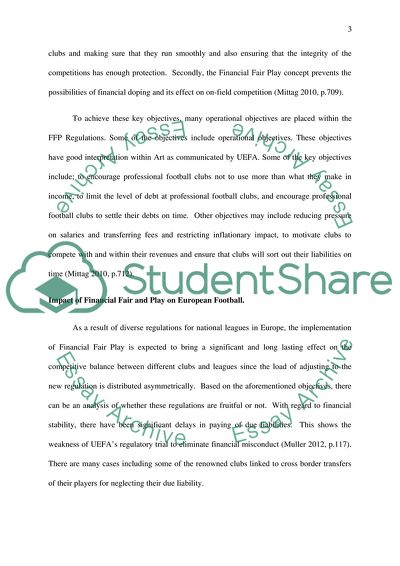Cite this document
(1.Critically evaluate the UEFA Financial Fair Play Regulations in Essay - 1, n.d.)
1.Critically evaluate the UEFA Financial Fair Play Regulations in Essay - 1. https://studentshare.org/finance-accounting/1798439-1critically-evaluate-the-uefa-financial-fair-play-regulations-in-european-club-football-in-terms-of-competitive-balance-and-long-term-regulatory-objectives
1.Critically evaluate the UEFA Financial Fair Play Regulations in Essay - 1. https://studentshare.org/finance-accounting/1798439-1critically-evaluate-the-uefa-financial-fair-play-regulations-in-european-club-football-in-terms-of-competitive-balance-and-long-term-regulatory-objectives
(1.Critically Evaluate the UEFA Financial Fair Play Regulations in Essay - 1)
1.Critically Evaluate the UEFA Financial Fair Play Regulations in Essay - 1. https://studentshare.org/finance-accounting/1798439-1critically-evaluate-the-uefa-financial-fair-play-regulations-in-european-club-football-in-terms-of-competitive-balance-and-long-term-regulatory-objectives.
1.Critically Evaluate the UEFA Financial Fair Play Regulations in Essay - 1. https://studentshare.org/finance-accounting/1798439-1critically-evaluate-the-uefa-financial-fair-play-regulations-in-european-club-football-in-terms-of-competitive-balance-and-long-term-regulatory-objectives.
“1.Critically Evaluate the UEFA Financial Fair Play Regulations in Essay - 1”. https://studentshare.org/finance-accounting/1798439-1critically-evaluate-the-uefa-financial-fair-play-regulations-in-european-club-football-in-terms-of-competitive-balance-and-long-term-regulatory-objectives.


